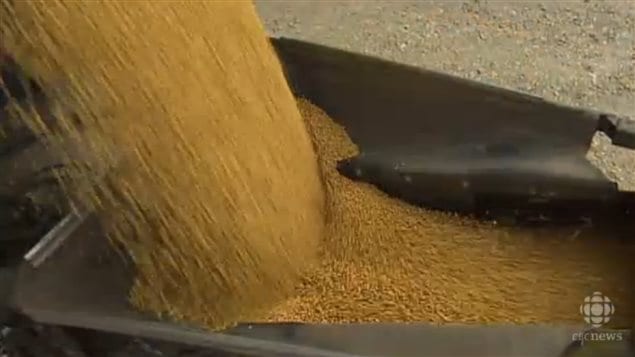The proposed merger of two of the world’s biggest bio-tech and chemical companies has made world headlines.
The merger, worth $66 billion, will see Bayer AG, involved mostly in chemicals. take over Monsanto Co. which is heavily involved in bio-technology.
Not everyone sees this as a good thing for farmers, or consumers.
Lucy Sharratt is the coordinator of the Canadian Biotechnology Action Network (CBAN) and is based in Ottawa, the nation’s capital.
Listen
This merger is the latest in a series of enormous multi-national agri-business mergers.
Dow and Dupont agreed to merge in 2015, and ChinaChem bought Syngenta earlier this year. If the Bayer-Monsanto deal goes through, it will see the world six largest seed and chemical companies reduced to only three.
In combination, these three huge multinational entities will have majority control of commercial seed and pesticide sales at over 60 percent globally for both markets.
Ms Sharratt says, “This extreme level of corporate control in seeds and pesticides risks the future of food and farming in Canada, and around the world,”

CBAN says that as these companies have swallowed up smaller competitors and increased market share, seed prices over the past twenty years have risen at a faster rate than most other farm inputs, and the price of genetically engineered (GE) seeds is higher than non-GE seeds.
By controlling seed, you control the food system, control food, you control people
At least one Canadian farm group however has come out against the deal.
In a press release today, the National Farmers Union (NFU) expressed their concerns.

“Mergers and acquisitions are not investments in new productive capacity,” said Terry Boehm, Chair of the NFU’s Seed and Trade Committee. “These transactions are a way for large corporations to restructure their existing assets to obtain higher profits and greater control by eliminating competition within the market.”
He adds, “The companies involved in these mergers have been increasing their control over agricultural production, especially seed, for a long time. By controlling seed, you control the food system,” said Boehm. “When you control the food, ultimately you control people. Should this kind of power be in the hands of so few?”
CBAN is calling on the Competition Bureau in Canada expressing their serious concerns about this merger.
They are also calling on farmers and citizens to think of the implications of a mere three multinational companies controlling most of the world’s seeds and pesticides.
Additional information-sources







For reasons beyond our control, and for an undetermined period of time, our comment section is now closed. However, our social networks remain open to your contributions.